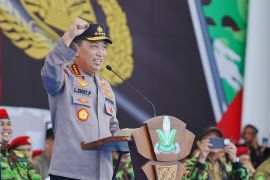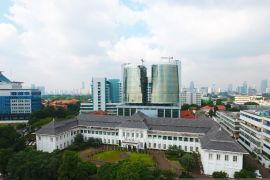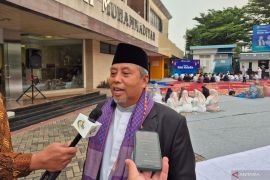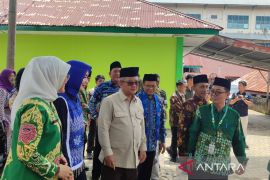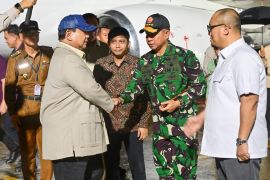"Our journey as a nation is still far from over. There are still several new challenges that we will face, but Muhammadiyah can answer them," Jokowi said.Makassar, South Sulawesi (ANTARA News) - President Joko Widodo (Jokowi) has expressed hope that the Muhammadiyah Muslim Organization in Indonesia can act as a driver for the progress of the nation.
"Muhammadiyah can strengthen its role as a driving force for the advancement of the nation," President Jokowi remarked during his opening address at the 47th congress of the organization in Makassar, South Sulawesi, on Monday.
The president further noted that Muhammadiyah should be answerable to the people and have an answer to the problems of the nation.
"Our journey as a nation is still far from over. There are still several new challenges that we will face, but Muhammadiyah can answer them," Jokowi emphasized.
Jokowi was optimistic that Muhammadiyah can also respect the diversity of Indonesia.
The president then called on the organization to continue to fight for the independence of the Palestinian state and world peace.
Established in 1912, Muhammadiyah, the socioreligious organization in Indonesia, aims at adapting Islam to modern Indonesian life.
The organization was chiefly inspired by an Egyptian reform movement, led by Muhammad Abduh, which had tried to bring the Muslim faith in harmony with modern rational thoughts.
The Muhammadiyah advocated abolishing all superstitious customs, mostly relics of pre-Islamic times, and the loosening of the rigid traditional bonds that tended to strangle modern cultural life.
During its 47th national congress in Makassar, Indonesias second-largest Muslim organization will formulate a new agenda for the next five years, including electing a new leader who will replace two-time Chairman Din Syamsuddin.
Muhammadiyahs challenges and plans include the internal consolidation of leadership and bureaucratic improvement alongside dealing with the external issues of globalization, poverty, lack of education, low quality of human resources, and the upcoming integrated ASEAN economic community.
In response to such challenges, Muhammadiyahs central board in the past years reformulated its movement through the notion of Islam "berkemajuan," a hot topic among its members and activists.
"Progressive Islam", a loose translation of Islam "berkemajuan", is clearly a part of the efforts to cope with several challenges, including poverty, injustice, and the lack of skilled human resources, being faced by its followers and other Indonesian Muslims.(*)
Editor: Heru Purwanto
Copyright © ANTARA 2015



